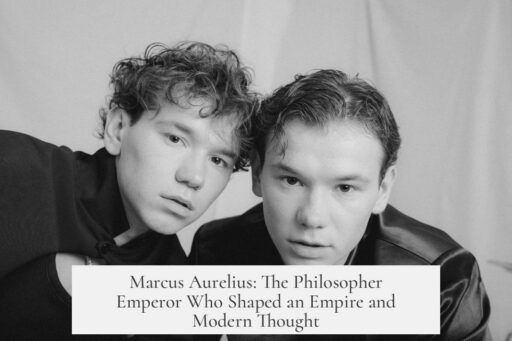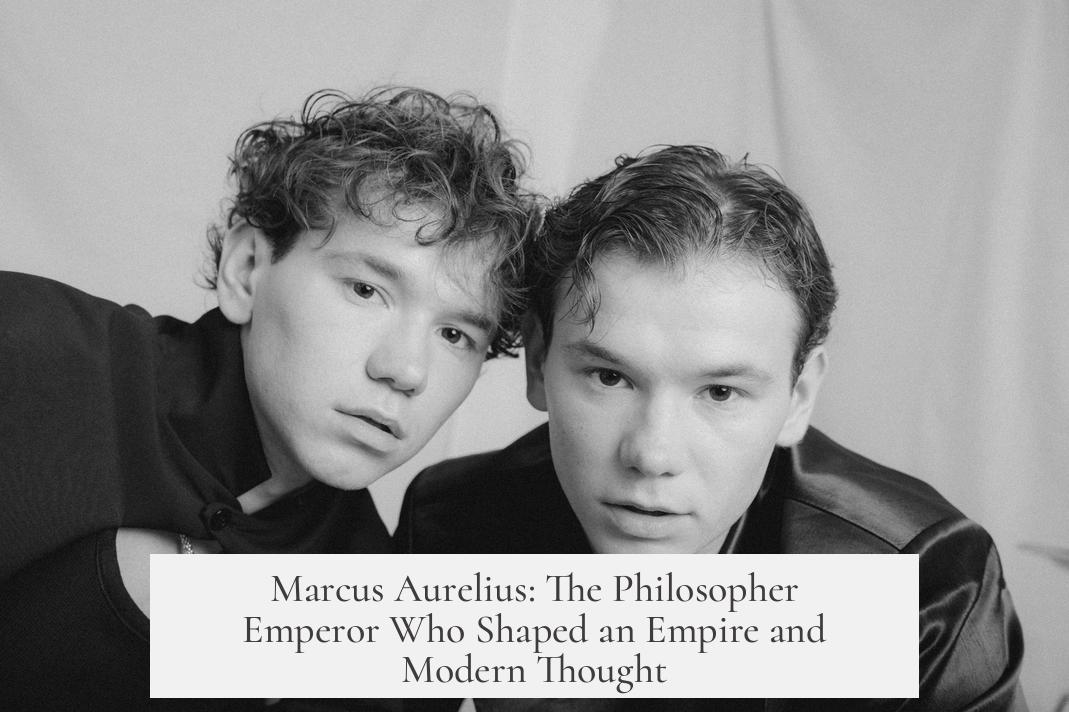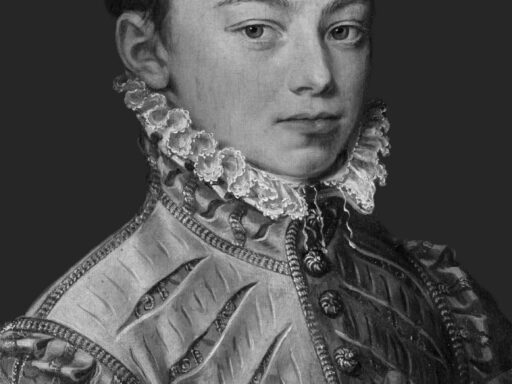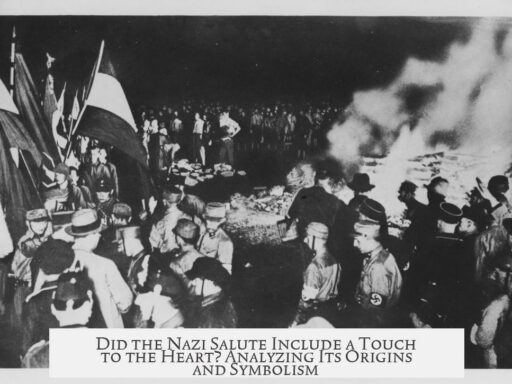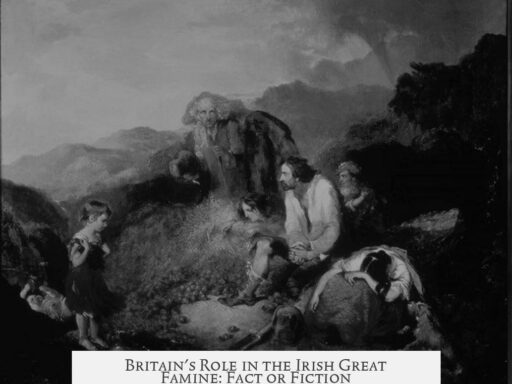Marcus Aurelius is such a big deal because he combined military leadership, personal virtue, and philosophical insight to rule the Roman Empire during a turbulent period, leaving a legacy that influenced both his contemporaries and modern thinkers.
His reign stands out mainly for its **defensive military success**. Marcus Aurelius faced near-continuous wars to protect the empire’s vast frontiers. He led campaigns against Germanic tribes near modern Belgium and Slovakia, and defended the eastern boundaries in areas near Armenia and Iran. Moreover, he suppressed rebellions in both Egypt and Spain. Notably, he sometimes commanded his armies in person, dying on campaign near today’s Vienna. These efforts kept the Roman Empire intact despite immense pressure from external enemies and internal unrest.
What made his military leadership exceptional was not just battlefield victories but also his **humane treatment of the defeated**. Ancient historian Cassius Dio remarked that Marcus treated even his most stubborn foes with mercy. Instead of executions, he preferred exile, as in the case of the rebel Tiridates, who was sent to Britain rather than killed. Marcus avoided harsh punishments like executions of senators suspected of conspiracy. He even destroyed conspirators’ documents unread to avoid inciting hatred. His soldiers were taught to forgive enemies who broke faith, highlighting an ethic of clemency unusual for his era. Marcus’s aversion to bloodshed extended to watching gladiators fight with blunt weapons, underscoring his personal restraint.
Beyond his military and political roles, Marcus Aurelius was praised for **personal virtue and humility**. Unlike many emperors, he avoided extravagance. For instance, he sold palace furniture to fund military campaigns. He also showed humility by mingling with ordinary knights and entering the Forum as an equal despite his rank as Caesar. His personal conduct was simple; he wore modest clothes, visited the sick, and maintained close ties with his teachers. His policies extended to social reforms, notably easing the path for slaves to gain freedom. These actions portrayed him as a ruler committed to moral principles rather than opulence or cruelty.
Marcus Aurelius gained fame as a **philosopher-king**. He had a deep interest in philosophy, especially Stoicism, and encouraged education across the empire. His work Meditations, written privately during his campaigns, was published only after his death yet became a cornerstone of Western philosophy. Contemporary historians like Herodian called him “the perfect emperor,” praising his love of literature, blameless character, and temperate lifestyle. Cassius Dio agreed that Marcus ruled better than any predecessors. This intellectual legacy distinguished him among emperors.
Despite these strengths, the empire suffered after his death. His successor, Commodus, proved a poor ruler, causing famine, civil strife, and 70 years of instability known as the Year of Five Emperors. Some modern historians like Edward Watts argue Marcus was overrated, pointing out the continued wars as signs of incomplete success and criticizing his choice of Commodus as heir, which broke tradition and hastened decline. Ancient sources may have idealized Marcus, blending reality with nostalgia.
Nonetheless, Marcus Aurelius’s reputation endured strongly. Romans in the 3rd century looked back on his rule as a last golden era of competent leadership and stability. His image grew through Christian scholarship and Renaissance thinkers. His Meditations influenced Enlightenment philosophers deeply, shaping ideas of duty, self-control, and leadership.
In popular culture, Marcus’s reputation has sometimes strayed into myth. The 2000 film The Gladiator portrays him as a philosopher trying to restore the Roman Republic, reflecting 18th-21st century republican ideals but straying from historical fact. This mythologizing shows how ideas about Marcus continue to evolve, intertwining fact and legend.
His role in political mythology remains strong. Like George Washington, called the “American Cincinnatus,” Marcus symbolizes republican virtues and self-sacrifice. This legacy was especially vibrant during classical revivals in the 18th and 19th centuries.
Key takeaways:
- Marcus Aurelius combined military leadership with humane treatment of enemies, preserving the empire’s borders.
- He ruled with personal humility and addressed social issues like slavery reform.
- His Stoic philosophy and Meditations shaped intellectual history and inspired later leaders.
- His reign contrasts with his successor’s failures, influencing his lasting reputation.
- Modern views sometimes critique or mythologize him, but his influence endures culturally and politically.
Why is Marcus Aurelius Such a Big Deal?

Marcus Aurelius stands out because he was a rare blend of a fierce military leader, a humble and moral ruler, and a philosopher-king whose impact reaches far beyond his own time. Let’s unravel what makes him a historical titan, exploring his military exploits, personal character, philosophical legacy, and lasting reputation.
Why does one man from ancient Rome still fascinate today? Well, Marcus Aurelius is not your usual emperor. He fought wars, showed mercy, practiced self-sacrifice, and wrote philosophy that still resonates centuries later. He’s like a historical Swiss army knife—a lot packed into one person.
Military Might That Held an Empire Together

First up, Marcus Aurelius’s military leadership was more defensive than offensive. The Roman Empire was under constant pressure—from Germanic tribes near modern Belgium and Slovakia to rebellious factions as far away as Armenia and Iran. The dude spent his whole reign fighting almost nonstop to keep the empire intact. And here’s a gritty detail: he personally led some campaigns, dying on the front lines near today’s Vienna. Talk about leading by example—he didn’t just sit on a cushy throne sipping wine!
Yet, Marcus’s success wasn’t just about raw power. Historians like Cassius Dio praise his humane treatment of enemies. When the stubborn Tiridates was defeated, Marcus sent him to Britain instead of executing him. That’s like saying, “You lose. Here’s a ticket to another tough gig overseas,” rather than chopping heads off. Even conspirators weren’t brutally executed; many were put on trial instead, and any sensitive documents were destroyed unopened to prevent hate. He preached forgiveness to his soldiers, promoting loyalty without unnecessary bloodshed. This is not your classic ruthless warrior emperor.
The Virtuous Emperor — Humble and Principled
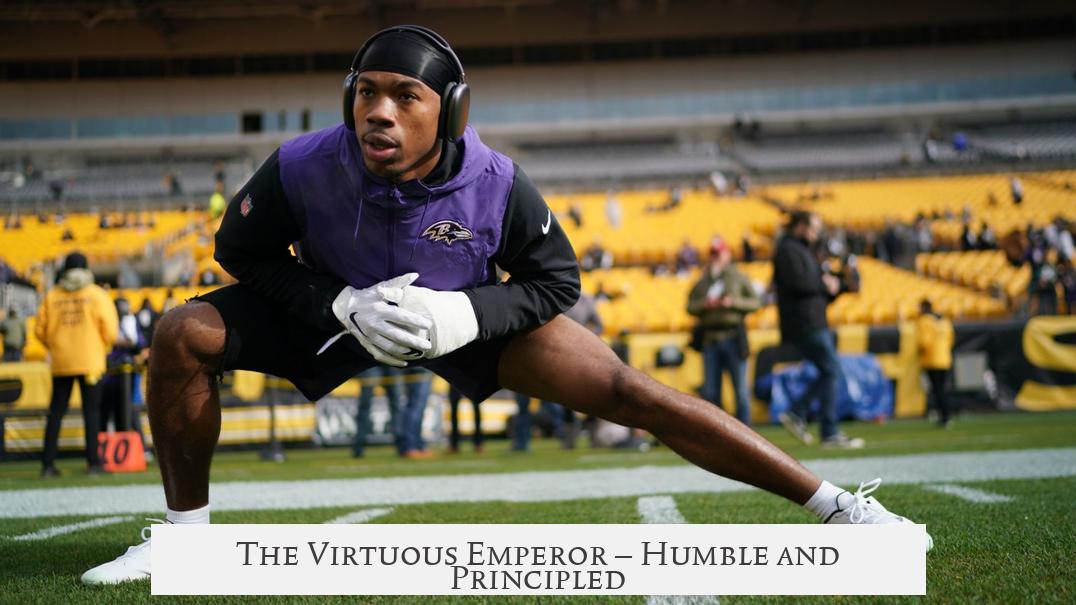
Marcus Aurelius’s personal life shines with humility and virtue. In an age of extravagant rulers who fancied themselves gods, he destroyed palace furniture to raise funds for war. Imagine the emperor auctioning off his own royal chairs to feed his armies! He visited the sick, wore simple clothes, and mingled with the everyday Roman soldier and knight despite his status as Caesar. When appointed leader of the knights, he entered the Forum alongside everyone else, showing unpretentious leadership.
Was he a slave-owner? Yes, but notably progressive for his time, expanding the categories of people allowed to free slaves. This reflects a thoughtful approach to social policies rather than blind tradition. Marcus seems less concerned with pomp and power and more with genuine leadership and fairness.
Philosophy Meets Power: The Thinker on the Throne

Marcus Aurelius is legendary for his philosophical work, Meditations, though these writings weren’t public during his life. Still, even then, he was famous throughout the empire as a proponent of education and philosophy. Historians like Herodian called him the “perfect emperor,” praising his love of literature and moderate lifestyle. Cassius Dio went further, asserting he ruled better than any predecessor in power.
But beware: modern critiques like Edward Watts argue Marcus’s reign wasn’t flawless. Continuous wars might hint at a lack of decisive victory. His choice to appoint Commodus, his son, as heir—breaking tradition—proved disastrous. Despite noble intentions, this decision led to decades of civil unrest. Plus, ancient praises arguably tinted by nostalgia might have gilded his image.
Legacy: The Golden Standard Against a Bleeding Empire

Regardless of criticisms, Marcus Aurelius was the high-water mark in Roman leadership for centuries after his death. His successor Commodus’s erratic behavior led Rome into the chaotic Year of Five Emperors, a 70-year storm of instability. Compared to that turmoil, Marcus looked like the calm eye of the storm. Later emperors openly tried to emulate him to bolster their own shaky claims.
Interestingly, his reputation outlived the empire’s decline. Romans in the 200s looked back on his rule as a last golden era of stability and wisdom. Think of him as the Roman “good old days” mascot. Christian scholars and Renaissance thinkers embraced his legacy further, weaving his story into a broader tapestry of moral and political philosophy.
Marcus Aurelius and Modern Thought: The Philosopher King Icon

The popularity of his Meditations skyrocketed with the Enlightenment. European thinkers saw him as a model of duty, self-sacrifice, and republican ideals. He became an archetype of the “Philosopher King,” inspiring leaders like George Washington, who was dubbed the “American Cincinnatus,” reflecting the theme of self-sacrificing leadership embedded in Marcus’s image.
This mythology even finds its way into pop culture. Ridley Scott’s 2000 film The Gladiator presents Marcus as an idealistic ruler fighting to restore Roman republic values. The historical reality? Not so much. The movie version sports modern Republican notions (think democracy and liberty), which didn’t quite exist in the same form back then. Yet, this myth helps keep Marcus’s story alive and sparks curiosity.
The Complex Web of Historical and Mythical Reputation

So where does Marcus’s reputation come from? Mostly from contemporary historians such as Cassius Dio and Herodian, whose writings, though occasionally glowing to a fault, shaped the Roman view of their emperor. Later Christian scholars and Renaissance thinkers amplified this, embedding him in a tradition of virtuous rulership.
History is never just straight facts; it’s a narrative shaped by storytellers. Like Domitian, once reviled then reassessed, Marcus’s image is layered. He’s part hero, part philosopher, part myth, seen differently from political, cultural, and temporal perspectives.
Here’s a thought: If Marcus Aurelius lived today, would he survive the social media age? His empathy, humility, and leadership style feel surprisingly modern. No grandiose Instagram posts. Just quiet, resilient leadership and deep thinking. It’s a refreshing break from headline-grabbing antics.
Practical Lessons from Marcus Aurelius’s Life
- Leadership by example: Marcus led from the front, both militarily and morally. Today’s leaders could take notes.
- Mercy as strength: Treating enemies humanely isn’t weakness—it’s strategic and humane leadership.
- Humility in power: Selling palace furniture instead of overindulging sends a clear message about priorities.
- Philosophy in action: Intellectual curiosity and values can guide decisions, even in political chaos.
- Legacy matters: History can mythologize you, but the seeds are sown by your actions.
Considering all this, Marcus Aurelius is a big deal because he embodies a rare ideal: a warrior philosopher who ruled with wisdom, kindness, and resilience during one of Rome’s toughest periods. His complexities make him human, his deeds make him a legend, and his writings make him timeless.
Next time you hear someone mention “Marcus Aurelius,” remember: it’s not just the guy who sat in a palace writing pretty words. It’s the leader who fought wars, forgave foes, dressed simply, and thought deeply—all wrapped in a legacy that transcends millennia.
